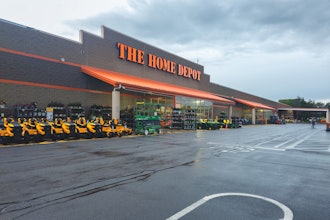WASHINGTON (AP) — New applications for unemployment insurance rose last week to their highest level in almost six months, the latest evidence that some employers are still cutting their staffs.
First-time claims for jobless benefits edged up by 2,000 to a seasonally adjusted 484,000, the Labor Department said Thursday. Analysts had expected a drop. That's the highest total since February.
Initial claims have now risen in three of the last four weeks and are close to their high point for the year of 490,000, reached in late January. The four-week average, which smooths volatility, soared by 14,250 to 473,500, also the highest since late February.
The prospects of more layoffs added to this week's grim outlook for the economy, which began Tuesday when the Federal Reserve lowered its assessment of the recovery.
Investors were bracing for another rocky day on Wall Street. Dow Jones industrial average futures, which were down about 50 points before the report came out, fell further. They were down nearly 90 points before the market opened.
Economists closely watch weekly claims, which are considered a gauge of the pace of layoffs and an indication of employers' willingness to hire.
Other recent reports indicate that private employers are hesitant to add new workers. The government's July jobs report, released Friday, showed that the economy lost a net total of 131,000 jobs last month. Excluding the impact of the elimination of 143,000 temporary census jobs, the economy added a meager 12,000 positions, as layoffs by state and local governments almost canceled out weak hiring by businesses.
Thursday's report on jobless claims indicates that trend may not change soon. Claims fell steadily last year from their peak of 651,000, reached in March 2009. But they have mostly leveled out this year at or above 450,000. In a healthy economy with rapid hiring, claims usually drop below 400,000.
Still, layoffs in the private sector have fallen back to pre-recession levels, at least as of June, according to a separate government report released Wednesday. Some economists speculate that many census workers whose jobs are finished are requesting unemployment benefits.
Claims could also be rising because of large job cuts by state and local governments, which are struggling with unprecedented budget gaps. State and local governments cut 48,000 jobs in July.
Another possibility is that small companies, facing tight credit, are still reducing their staffs, even as larger corporations slowly resume hiring.
The total number of people receiving benefits dropped 118,000 to 4.45 million, the department said. But that doesn't include another 5.3 million people receiving extended benefits paid for by the federal government, as of the week ending July 24, the latest data available.
During the recession, Congress added up to 73 extra weeks of unemployment benefits, on top of the 26 usually provided by states. That extended program lapsed in early June but was reinstated by Congress last month.
Some companies are still cutting workers. Medical products manufacturer CareFusion Corp. said Wednesday it plans to eliminate 700 jobs, saving the company up to $120 million a year.


















